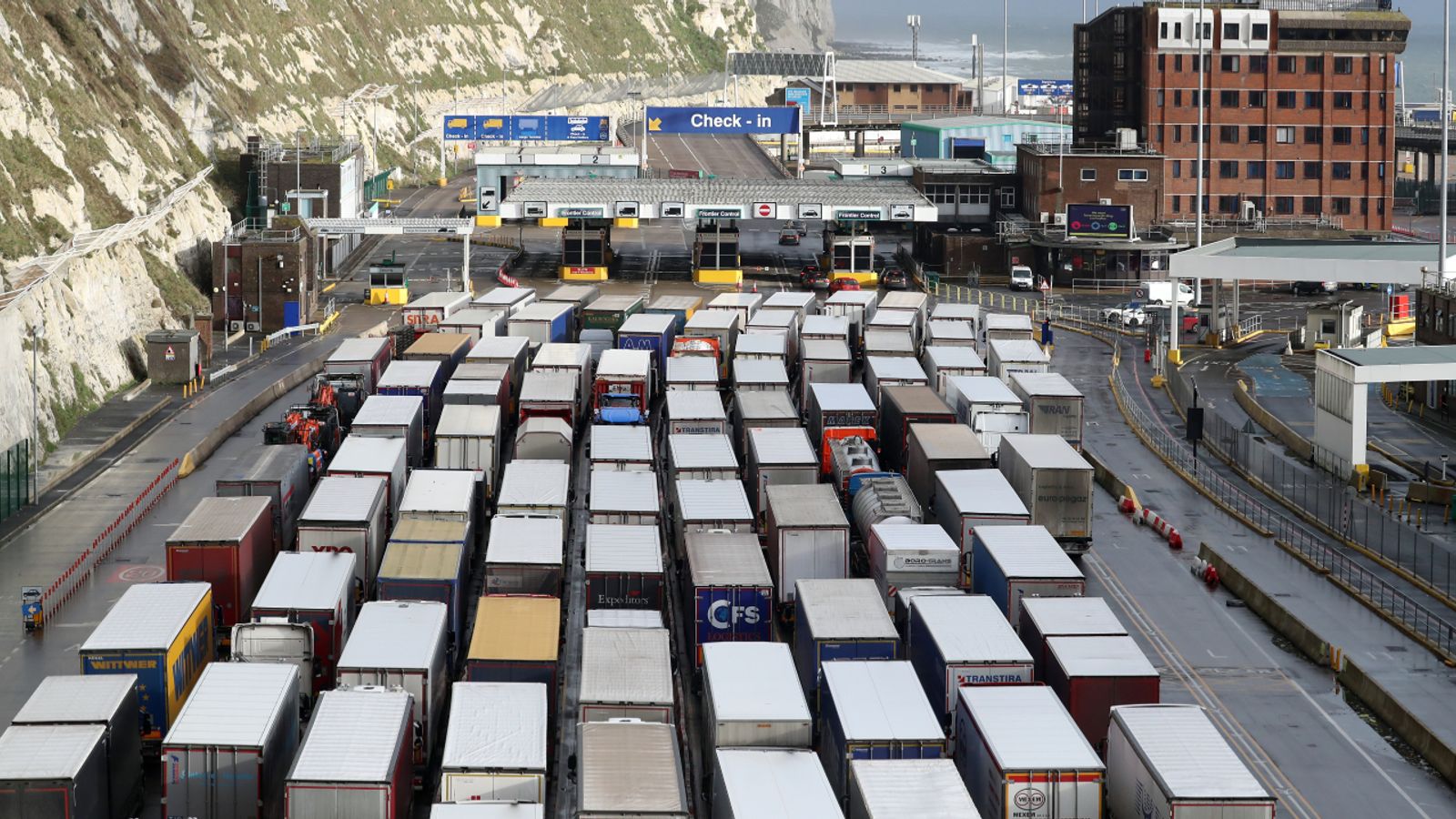A top figure in the haulage industry has told Sky News that deploying army personnel to help tackle the HGV driver shortage “will not scratch the surface” of the UK’s delivery crisis.
Richard Burnett, who heads the Road Haulage Association (RHA), was responding to reports the government was set to call on HGV specialists from the military, including the Royal Logistics Corps, in an effort to tackle a deteriorating backlog of goods that has seen some supermarket shelves run bare in recent weeks.
There are potentially 2,000 drivers who could take up some of the slack but both the Department for Transport (DfT) and Ministry of Defence (MoD) have signalled that no official request had yet been made.
Mr Burnett said that 40% of the number were part of the Territorial Army – reservists – and suggested that even the military could do little to alleviate the scale of the industry’s immediate challenges which had been made more difficult by the summer holidays.
The RHA has blamed the COVID crisis for the bulk of its problems – with many drivers returning home to European countries at the start of the pandemic never to return because of Brexit and disruption to driver tests during the pandemic holding back replacements.
The body RHA estimates the shortfall of drivers at 100,000 and has demanded the government relax Brexit immigration rules to allow foreign talent to return on a temporary basis.
It is a plea that has, so far, fallen on deaf ears in Whitehall – with government assistance to date including a relaxation of rules governing drivers’ working hours and promises of a more streamlined testing system to aid recruitment.
Please use Chrome browser for a more accessible video player
The job has become more attractive salary-wise in recent months as a growing number of firms offer up-front bonuses and wage uplifts in an effort to attract and retain staff respectively.
But Mr Burnett warned that even with any military assistance, the UK was still heading for a winter of worsening disruption as the busy Christmas season loomed.
He said: “This really isn’t going to scratch the surface at all or give any reassurance that as things get worse during the summer, as drivers take more holidays and we’ve got no drivers to backfill, that this is really a resolution to the problem at all.”
He added: “We’re seeing the impact in the supermarkets, drivers that drive refuse vehicles are being attracted away by higher wages in many sectors, that’s going to mean difficulties in terms of collecting waste.”
Mr Burnett pointed to containers “stacking up” at ports as evidence the backlog was getting worse.
“We really need government to wake up and realise that the only short term solution here is to address this through the Home Office shortage occupation list and with temporary visas to allow us in the short-term additional labour in while we train a UK based workforce which is going to take at least 18 months to tackle.”
A government spokesperson responded: “We recently announced a package of measures to help tackle the HGV driver shortage, including plans to streamline the process for new drivers to gain their HGV licence and to increase the number of tests able to be conducted.
“We have also temporarily relaxed drivers’ hours rules to allow HGV drivers to make slightly longer journeys, but these must only be used where necessary and must not compromise driver safety.”






















